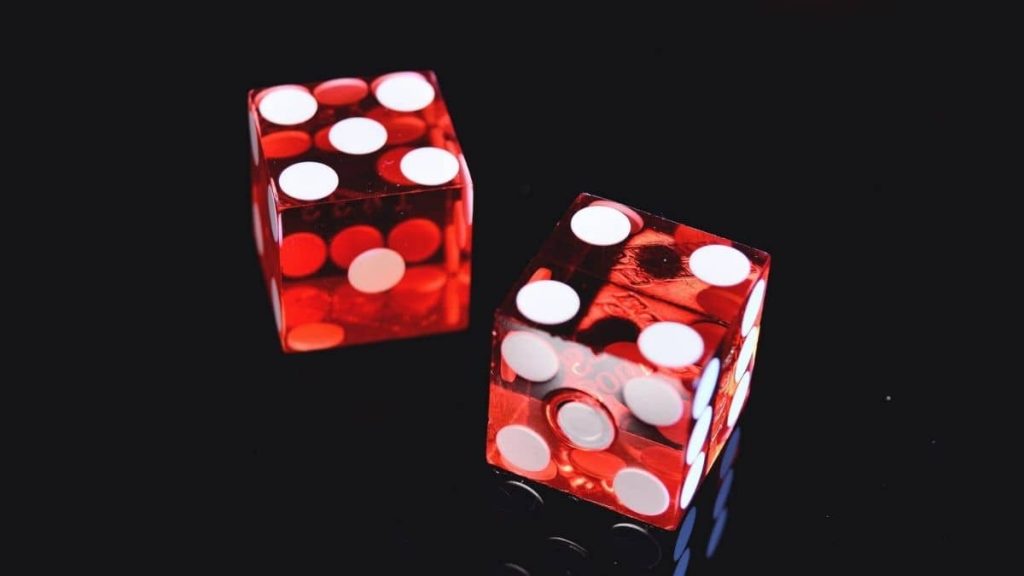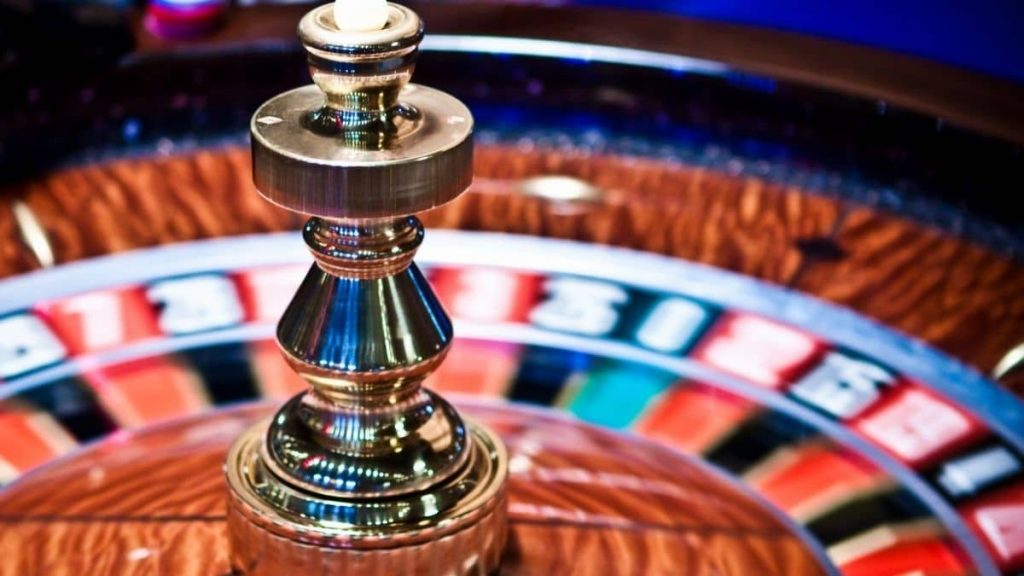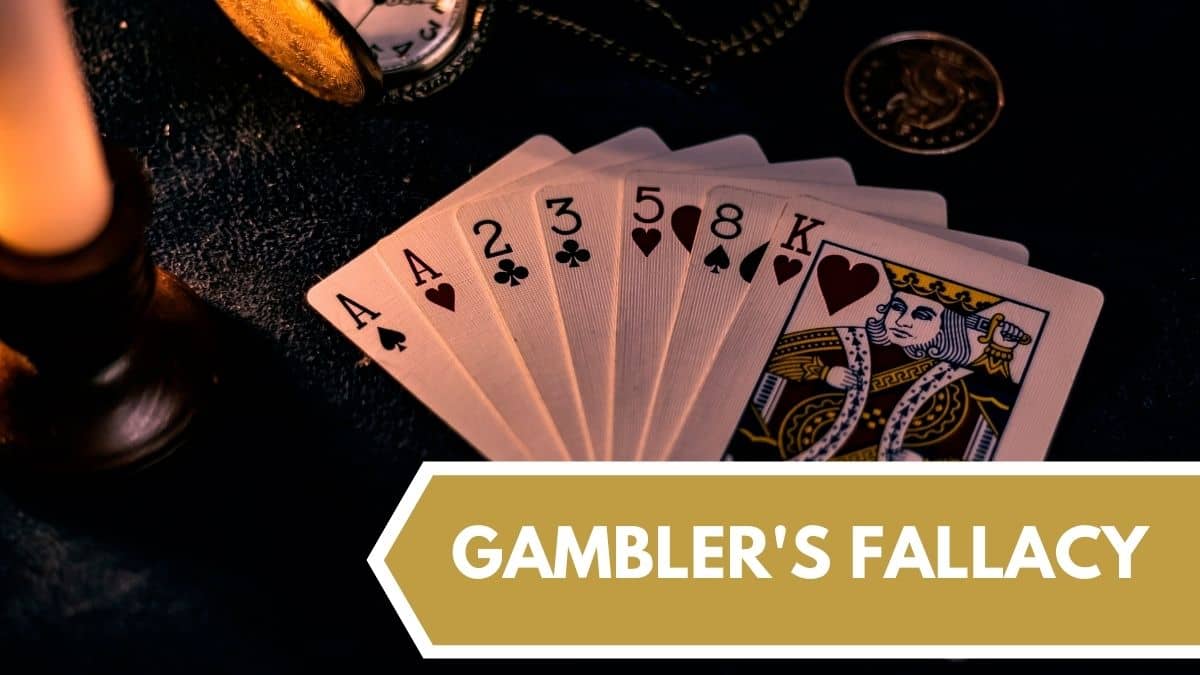The subject of defeating the odds is perhaps the oldest thing in gaming. Many people cultivate and propagate a wide range of incorrect notions about how this can be accomplished. What is the gambler’s fallacy? Let’s check out the gambler’s fallacy example at trusted online casino Singapore.
Some people believe they know the answer on how to beat the odds. However, no one has ever been successful in formulating one. This question is not answered. No matter how many ideas people come up with, they still fail. Surprisingly, players refuse to see the answer. It has been there all along and they do not want to accept it. We explain why in this essay and debunk the falsehoods that many people think.
What is Gambler’s Fallacy?
The gambler’s fallacy is a mistake that many people make. It happens when people think that they can predict the future because of what happened before. However, it may be seen in a variety of other scenarios that have little to do with gambling but a lot to do with random events.
It’s amazing how much trouble one can get into just of a basic misunderstanding of how things function. As a result, before we define the fallacy, we’ll go through some terminology. Then we’ll go through the nature of the fallacy, followed by some examples and more research into the human mind to discover its origins.

Before we go any further, please keep in mind that this is not a guide or instruction on how to bet successfully. On the other hand, the goal of the gambler’s fallacy is to explain why the ideas underlying betting decisions frequently fail miserably. Hopefully, we’ll be able to help clear up a lot of ambiguity and provide a solid grasp of the gambling sector. So, it allows Singaporean players to play more responsibly at their chosen online casino in Singapore.
What exactly is gambling?
Gambling is the act of making a wager on a random occurrence in the hopes of winning money by correctly predicting the outcome. However, we don’t claim to be providing an exact scientific description. Still, our explanation covers the three most well-known characteristics of gambling:
Wager – To participate, one must stake a significant amount of money. You can consider a wager as a monetary investment in the game.
Risk – Because of the unpredictable character of the occurrence, the outcome cannot be predicted with absolute accuracy. Failure results in the wager being forfeited.
Prize – This refers to something valuable that one receives if the outcome of the game is favorable.
In many circumstances, the event that decides the outcome occurs shortly after the bet is placed. This includes:
- Roulette spin
- Card draw
- Dice roll
And this is a common occurrence in any Singapore online casino game. However, the modern gambling industry has increased the number of wagering options. Now, you can place a bet on events that will occur in the future. Also, you are more than welcome to wager on the exact outcome of next Saturday’s football game or about anything else.
It’s worth noting that the term “gambling” has a broader meaning. Thus, you’ve probably seen it used in contexts that have nothing to do with any games of chance. Many people use the word “gambling” to describe rash commercial decisions or taking risks that are not smart. This is because unpredictability, risk, and rewards can be found in many other real-life situations. We include some fascinating non-gambling examples of the gambler’s fallacy (or gambler’s paradox) in this article.
What is a logical fallacy, and how do you avoid it?
The definition of a fallacy is a logical error, which is quite convincing. A logical fallacy is a simplified concept used in decision sciences. It is short, but it could be wrong because people often confuse facts with logic.
Failure to conduct a fact check does not imply that you are employing erroneous reasoning. Let’s look at this example.
“All birds are reptiles, and all reptiles are vertebrates, which means that all birds are vertebrates,” says a biology student.
The logic is true in this statement, but the conclusion is based on a false fact. Because none of the bird species are reptiles. In short, we have a factual error here. Even if all birds are vertebrates, the way we got to that conclusion was not good. We are learning about biology in this class, not logic.
So, what exactly is a gambler’s fallacy?
Of course, being factually right does not always imply smart reasoning. Let’s check this gamblers fallacy example.
“The wheel touched red seven times in a row, so black must be due,” says the player at the roulette table.
Yes, we have real facts here. However, the conclusion we draw from them is completely incorrect. This is a logical error since it arises from faulty reasoning rather than a lack of understanding of facts.
Another essential aspect of fallacies is that they are difficult for the normal adult to recognize. A trained person must use considerable mental effort to recognize a fallacy.
Before we go any further, it’s worth noting that there’s a lot of scientific research on:
- Logical fallacies
- Cognitive biases
- Their relationships
- Disparities
This also includes all sorts of other topics linked to how and why humans don’t think clearly.
The Gambler’s Fallacy Definition

As you may have guessed, we’re talking about a logical fallacy that’s highly common among gamblers. And later on, you will notice that they’re not the only ones who make mistakes like this. Simply because the problem isn’t caused by gambling itself.
So, where do gamblers go astray?
Sometimes people think that if something repeats a lot, they can predict what will happen next. So they might think that if one time the red light came on, it will come on again. This is also known as the Chances Maturity Doctrine. In addition, the roulette example we mentioned earlier is a great example of this. The following are some of the reasons why this is incorrect:
- The outcomes on which a gambler bets are unpredictably occurring.
- Every occurrence is independent. The odds of the outcome do not change because of previous events. A roulette wheel, like dice, does not have a memory. With each new incident, the level of uncertainty remains the same.
- Random events can be uneven or unbalanced. Thus, coincidences can happen all the time. There is no law or force in place to maintain or restore the equilibrium. If you don’t believe me, look up the number of lightning strikes that have struck the same person. To give you a heads up, the figure is higher than what is statistically conceivable.
- If we are going to evaluate a sample of past events, we may notice some patterns. However, these patterns have no bearing on future events.
- True bias can happen. However, it is usually because of a technical problem or someone who has interfered with an event generator.
- A pair of dice
- Roulette
- A shoe containing six shuffled decks of cards
- Slot machine and more
The nature of randomization never produces bias. After all, this is the fundamental definition of randomness: anything can happen at any time.
So, what exactly is a gambler’s fallacy?
In summary, no matter how far back in the prior draws they explore for trends and clues. Thus, no one can predict the lottery numbers from the next draw. Therefore, every number combination in the following draw has the same probability. However, there is one type of circumstance in which the likelihood changes.
This can also occur in card games such as blackjack, in which cards are pulled from the deck and then not returned. As you go through the game, the number of alternative outcomes diminishes. So, the more cards we take out of the deck, then the more likely we are to draw one of the remaining cards. On the other hand, the likelihood of any of the remaining cards in the deck is the same.
Historical Gambler’s Fallacy Example
Do you know any gambling curse?
The Monte Carlo fallacy is another term for the gambler’s fallacy. Also, the gambler’s dilemma is a common name for it, however, it’s a misconception.
One roulette wheel at the Casino de Monte Carlo hit black 26 times in a row on a warm evening in 1913. Millions of francs were lost by players who mistook believed that red was due. Some people think the long string of one-color hits means an exceptional deviation from the average. So, they try to fix it. They still believe that even though the probability of red vs black is 50/50.
So, what went wrong in their case?
- They thought the average was a natural force that had to correct all discrepancies. The average is a statistical conclusion that must be determined from a large sample to be representative. Twenty-six spins is a very small sample size.
- Many gamblers mistakenly confused the statistical likelihood with the average. A 50% chance does not guarantee that 50 reds and 50 blacks will appear in a sample of 100 spins. To simply put, you have a 50/50 chance of getting red or black on your next spin.
- Furthermore, the sample size had been exaggerated. When hundreds of spins are made every day, how big is 26? Small samples are prone to large deviations from the mean. Therefore, they aren’t meant to represent the entire population.
- They’d miscalculated future spins’ independence from previous spins. Simply put, they overlooked the fact that the wheel is memoryless.
- This is a remarkable gambler’s fallacy example. Because it demonstrates how many people might get the same insufficient conclusion based on the same flawed logic, based on the same information, at the same time. People are hilarious!
Gambler’s Fallacy: Why do we keep failing so miserably?
Do you know any gambler’s fallacy experiment?
The grounds behind the gambler’s fallacy are rooted in basic irregularities in the way our brains work, which you may find difficult to believe. In addition, cognitive psychology explains why we fool ourselves into believing nonsense by describing several situations. However, many of them represent the dark side of evolution or the price of overdeveloping certain qualities at the expense of others.

People, regardless of their education or training, appear to have a relatively intuitive attitude to randomness. In which, this can lead to erroneous assumptions and widespread misunderstanding.
What is the probabilistic reasoning of generalization?
A heuristic (probabilistic reasoning) is a psychological phenomenon characterized by the use of mental procedures. These are not ideal or completely rational yet it allows for quick solutions. People use the representativeness heuristic when they are trying to find out how likely an event is to happen. They compare it to other events that they have seen in the past.
To put it another way, we rely on our own unique experiences rather than math. What if someone asked us what the chances are that the next 6/49 lottery numbers will be 1-2-3-4-5-6? The majority of people would say that, if not impossible, this is extremely unlikely.
We can easily presume that an orderly draw is less likely to happen. Because the draws we’ve seen in our limited experience have been more chaotic. On the other hand, Math says it’s just as likely as any other six-number combination in the range.
What is the clustering illusion?
The clustering illusion is another phenomenon associated with the representativeness heuristic. This occurs when a string of seemingly random events appears to be strangely ordered or patterned. We have a proclivity for detecting patterns, especially in tiny data.
Humans value patterns because they provide meaning to the objects we see and have been shown to aid learning and memory. We have a predisposition towards seeking them out rather than willingly dismissing them. Our ability to recognize patterns has been crucial to our species’ survival. However, patterns also have their dark side.
We can easily conclude that they are the result of the full population when we see them in a tiny sample. Oftentimes, we overlook the chance of coincidences, repeats, and rare events, random events appear to be non-random.
So, going back to the evident pattern of 6 consecutive numbers in the lottery, most people would conclude that the sequence of numbers is not random. Rather, they are unlikely to occur in a random event such as a lottery draw.
Gambler’s Fallacy Example: Believing in Fairness of Random Events
There is a widely held yet incorrect belief that gambling is fair. Randomness means that people think that they have to correct the random events. They believe that if they are losing, then they need to win instead. Or if they are winning, then it is best not to change anything. The truth is that uncertainty ensures only one thing: that our desired outcome is impossible to predict. Not only does the roulette wheel lack memory, but it also lacks a sense of fairness and justice.

Some Example of Gambler’s Fallacy
- For the past three games, that team has won the coin toss. As a result, they will undoubtedly lose the coin toss tonight.
- Three girls have been born to the family in a succession. The next one will almost certainly be a boy.
- The wheel had landed on 12 the last time they spun it. As a result, it will not land on the number 12 this time.
- In the poker game, James has won the last five hands. Richard believes that James will never have another strong hand. So, he bets everything in this game against him.
- The sports team has contended for the National Championship every year for the past five years, and they always lose in the final round. This year is going to be their year!
- Jessica has had five job interviews this week, but no offers have been made. I believe she will receive an offer today.
- In the last ten meets, the gymnast has not fallen off the balance beam. I wouldn’t put my money on her today; she’ll eventually run out of luck.
Gambler’s Fallacy FAQs:
What exactly is the gambler’s fallacy?
The gambler’s fallacy is the assumption that the chances of a specific occurrence occurring are either greater or lesser based on the number of times the process has been repeated.
What is an example of a gambler’s fallacy?
The game of flipping a coin is probably the most popular example of a gambler’s fallacy. The gambler’s fallacy is exhibited by the fact that most people are willing to wager on heads if the coin has been flipped on tails many times in succession.
Is it true that the gambler fallacy is a deception?
Yes, in fact. The gambler’s fallacy is based on people’s behavior, which is that they increase their bets despite losing repeatedly. However, if the odds and probability are dispersed independently, previous defeats will not affect the chances of subsequent games.






